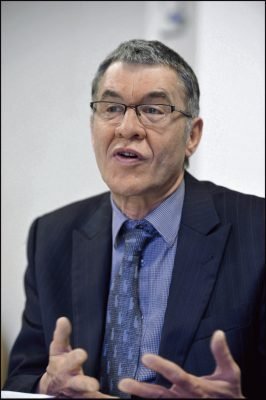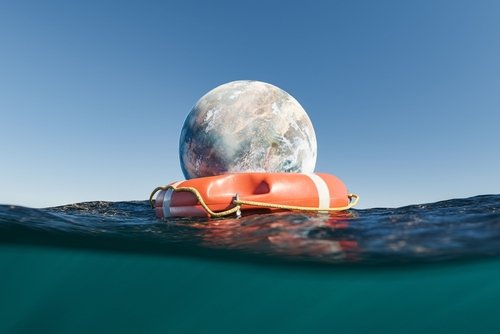Brussels (Brussels Morning) Since the summer of 2021, all 27 EU Member States have worked towards turning the EU into the first climate neutral continent by 2050. In order to achieve this goal, they committed to the EU target of reducing net greenhouse gas emissions by at least 55% by 2030, from 1990 levels. During the 8th Summit of the Southern Countries of the European Union, the member states acknowledged that there is still lots of room for improvement regarding the safeguarding of the marine environment and biodiversity, building the capacity of civil protection agencies, and intensifying multilateral cooperation.
Electrification of the economy is a very ambitious project that might appear very attractive and planet-friendly but at the end of the day, in the absence of an organised plan, this could backfire, harming the economy and social wellbeing by halting technological development and threatening environmental security.
Where there’s a will there’s a way
Last month, during the European Left Forum, the concept of how left-wing politicians and policymakers understand and plan to tackle the major environmental issues were communicated in Brussels.
Among other major socio-economic subjects related to environment, the declaration that was signed during the Forum states: “It is time for state regulation in certain socio-economic spheres while pointing out that the climate transition can only achieve its objectives if it is committed to rebuilding the food and industrial sovereignty of Europeans, breaking with the model of ultra-liberal, free competition and maximisation of financial profitability.”
Unfortunately, as things currently stand, implementation of the European Green Deal appears to have become a complete mess as countries agree or disagree over various policies while breaking into groups only to promote their national agenda.
Brussels Morning in the person of Dr. Angelos Kaskanis discussed the ongoing environmental crisis and clean energy transition process with Hervé Bramy, a French politician committed to the issues of civil society, the environment, and social equality.

AK: What should the role of nuclear energy be in Europe’s future?
HB: I want to make it clear that I am responding in a personal capacity and as a French Communist. Europe’s ambition is to reduce greenhouse gas emissions by 55% by 2030 and achieve carbon neutrality by 2050. A climate-neutral Europe means not emitting more CO2. that can be absorbed by land, forests, and oceans.
For this, there is no other path than a drastic reduction in the use of carbon-based energies (coal, gas, oil, etc.).
Let’s agree that each energy source has its drawbacks and advantages.
Considering the response to European energy needs (carbon-free production and consumption), renewable energy resources alone seem inadequate to me, since Europe wants to reindustrialise.
Therefore, nuclear energy should, in my view, be considered in a European energy mix. A 100% public energy mix which combines all renewable energies which have the disadvantage of being intermittent, hydraulic and nuclear with reinforced safety standards and monitoring of installations by independent bodies such as the Institute for Radiological Protection and Nuclear Safety (IRSN).
Of course, it is imperative to consider the best possible waste management control methods based on the current state of available knowledge.
In any case, when it comes to energy, nothing can happen without the unprecedented development of research.
AK: This summer we experienced natural disasters and wildfires in all member states of the south, particularly in Greece and Italy. Do you foresee any action taken at a Brussels level to avoid future catastrophes of that calibre?
HB: Dramatic events also affected Belgium and Germany with unprecedented flooding. So yes, Brussels must not remain passively observant of these climatic catastrophes, whether they are forest fires in the South or floods in the North of Europe.
It is indeed urgent to take things very seriously. Decarbonising our societies and our economies is an urgent matter. But it is about doing it in a radical way. The logic of the liberal management of Europe – which always gives priority to profit – is incapable of moving towards a sustainable human development mode that combines respect for human beings and the rest of the living world. We should keep in mind that no ecosystem is capable of adapting to such an evolution and the irreversible consequences will still be felt for thousands of years if nothing is done.
In fact, deciding on a policy that supports European regions for mitigation and adaptation measures is not reserved for developing countries alone. This also applies to Europe. Inventing a new mode of production and consumption, travel, and land use planning on the basis of growth that comes out of the clutches of GDP criteria is now a necessity…
We neeed to immediately review the funding criteria and the role of banks and therefore of the Central Bank in redirecting money towards all low-carbon investments: transport, energy, housing, agriculture, industrial processes. This strikes at the very heart of the functioning of capitalism, which must be overcome.




